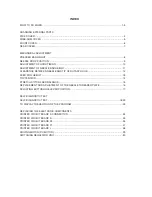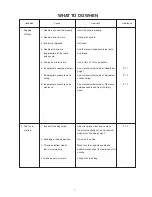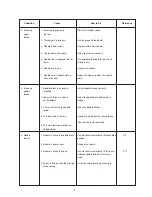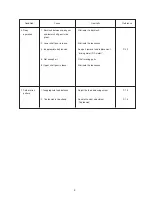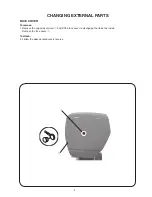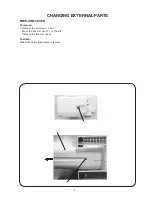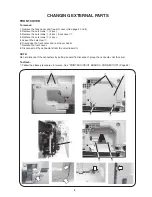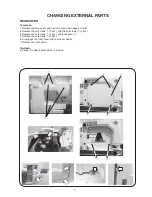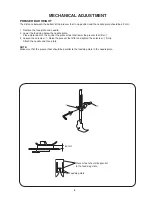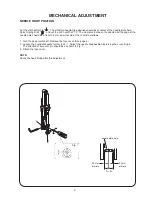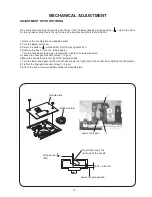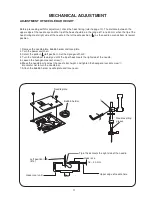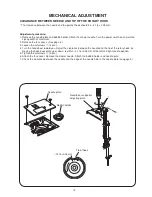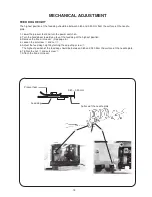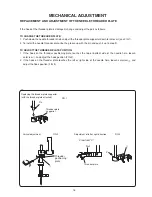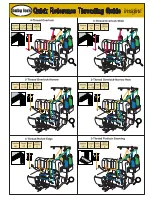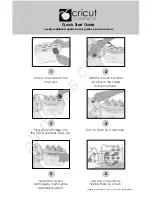
1
Condition
Cause
How to fix
Reference
1. Skipping
Stitches
1. Needle is not inserted properly.
2. Needle is bent or worn.
3. Incorrectly threaded.
4. Needle or thread are
inappropriate for the fabric
being sewn.
5. Sewing on stretch fabric.
6. Inappropriate needle bar height.
7. Inappropriate needle to hook
timing.
8. Inappropriate needle to hook
clearance.
Insert the needle properly.
Change the needle.
Rethread.
Use the recommended sewing needle
and thread.
Use a HA x #11 blue tip needle.
See mechanical adjustment “Needle bar
height”.
See mechanical adjustment “Adjustment
of hook timing”.
See mechanical adjustment “Clearance
between needle and tip of the rotary
hook”.
P. 11
P. 10
P. 12
2. Fabric not
moving
1. Incorrect feed dog height.
2. Feed dog is in down position.
3. Thread on bottom side of
fabric is jammed up.
4. Feed dog teeth are worn.
Adjust the presser bar level to make
the pressure stronger. See mechanical
adjustment “Feed dog height”.
Raise the feed dog.
Make sure to bring both needle and
bobbin threads under the foot when start
sewing.
Change the feed dog.
P. 13
WHAT TO DO WHEN


